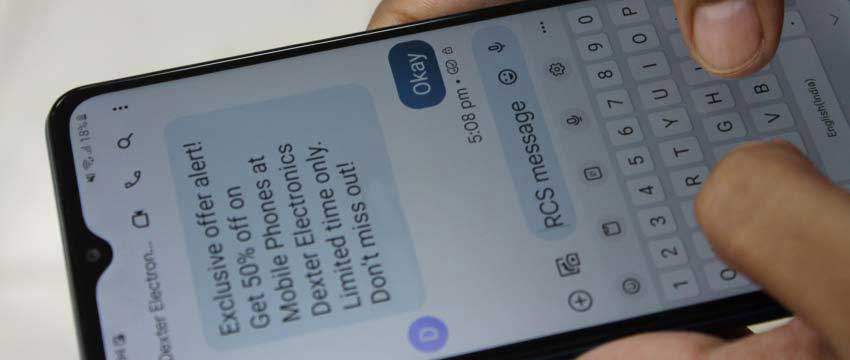Legal or Regulatory Requirements for Sending Bulk SMS Messages
There are legal and regulatory requirements for sending bulk SMS messages. These regulations vary by country and region, and failure to comply with them can result in fines, legal action, or damage to your reputation. ome of the legal and regulatory requirements you should consider when sending bulk SMS messages:-
-
Obtaining Consent from Recipients
In most countries, you are required to obtain consent from recipients before sending them bulk SMS messages. This means that you cannot send messages to anyone who has not explicitly opted-in to receive them. It is important to keep records of when and how consent was obtained, in case of any disputes.
-
Complying With Anti-spam Laws
In many countries, there are laws in place that prohibit unsolicited commercial messages, also known as spam. These laws often define what constitutes spam and can include penalties for violating them. It is important to review the laws in your country or region to ensure that your messages are compliant.
-
Providing an Opt-out Option
In addition to obtaining consent, you are required to provide an easy way for recipients to opt-out of receiving future messages. This can be in the form of a reply with a specific keyword, or an unsubscribe link that is included in the message.
-
Providing Accurate Sender Information
When sending bulk SMS messages, it is important to provide accurate information about the sender. This can include the name of your business or organization, a phone number or short code, or a website address.
-
Ensuring Data Protection and Privacy
Data protection and privacy laws vary by country and region, but in general, you are required to protect the personal data of your recipients and ensure that it is not used for any unauthorized purposes. This includes ensuring that any data you collect is stored securely and used only for the purpose for which it was collected.
-
Compliance with Industry Standards and Guidelines
There are several industry standards and guidelines for SMS marketing that you should be aware of, including those set by the Mobile Marketing Association (MMA) and the Cellular Telecommunications Industry Association (CTIA). These standards cover topics such as message content, frequency of messages, and opt-in processes.
❖In summary, sending bulk SMS messages requires compliance with legal and regulatory requirements. These include obtaining consent from recipients, providing an opt-out option, complying with anti-spam laws, providing accurate sender information, ensuring data protection and privacy, and compliance with industry standards and guidelines. Failure to comply with these requirements can result in fines, legal action, or damage to your reputation.
Best Practices for Creating and Sending Bulk SMS Messages
Creating and sending bulk SMS messages can be an effective way to reach a large audience quickly and efficiently. However, it is important to follow best practices to ensure that your messages are effective and comply with legal and regulatory requirements.

In this article, we'll take a look at some of the best practices for creating and sending bulk SMS messages.
-
Keep Messages Short and To The Point
One of the key advantages of SMS is its brevity, so it is important to keep your messages short and to the point. Most SMS messages are limited to 160 characters, so focus on the most important information and avoid using overly complicated language or unnecessary details.
-
Use a Clear and Compelling Call-To-Action (CTA)
Include a clear and compelling call-to-action in your messages to encourage recipients to take action. This can be in the form of a URL, phone number, or keyword that recipients can use to respond to your message.
-
Personalize Your Messages
Personalizing your messages can help to increase engagement and response rates. This can be as simple as addressing the recipient by name or tailoring the message content to their interests or preferences.
-
Timing is Important
Consider the timing of your messages carefully. Sending messages at the wrong time of day or on the wrong day of the week can significantly reduce their effectiveness. Aim to send messages at times when recipients are most likely to be available and receptive, such as during business hours.
-
Test and Optimize Your Messages
Regularly test and optimize your messages to ensure that they are effective and engaging. This can include experimenting with different message content, call-to-action, and timing, as well as tracking response rates and making adjustments accordingly.
-
Comply with Legal and Regulatory Requirements
Ensure that your messages comply with legal and regulatory requirements, including obtaining consent from recipients, providing an opt-out option, complying with anti-spam laws, providing accurate sender information, and ensuring data protection and privacy.
-
Follow Industry Standards and Guidelines
Follow industry standards and guidelines set by organizations such as the Mobile Marketing Association (MMA) and the Cellular Telecommunications Industry Association (CTIA). These standards cover topics such as message content, frequency of messages, and opt-in processes.
-
Keep Your Audience in Mind
Consider your target audience when creating and sending bulk SMS messages. Tailor your messages to their interests, preferences, and behaviors to increase engagement and response rates.
-
Monitor Your Results
Regularly monitor your results to track the effectiveness of your messages and make adjustments as needed. This can include tracking response rates, opt-out rates, and conversion rates.
In summary, creating and sending effective bulk SMS messages requires following best practices, including keeping messages short and to the point, using a clear and compelling call-to-action, personalizing messages, timing messages appropriately, testing and optimizing messages, complying with legal and regulatory requirements, following industry standards and guidelines, keeping your audience in mind, and monitoring your results. By following these best practices, you can create and send bulk SMS messages that are engaging, effective, and compliant.
